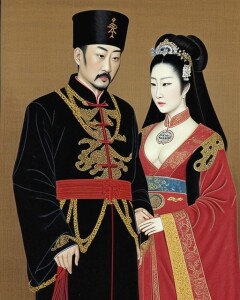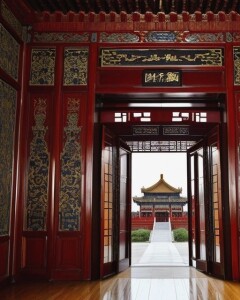The transition of China away from the imperial system stands as a momentous and transformative event that arose from a convergence of compelling factors. Essentially, the emergence of revolutionary ideas and a strong desire for modernization ignited an intense longing for change. Throughout the 19th century, as the Qing Dynasty grappled with a series of internal and external challenges, including the devastating Opium Wars and the tumultuous Taiping Rebellion, Chinese intellectuals and reformers began to critically evaluate the effectiveness and legitimacy of the imperial system. They fervently believed that China’s survival and standing in the global arena necessitated the adoption of Western concepts and technologies. This conviction became a rallying cry for revolutionary action, advocating for the overthrow of the monarchy and the establishment of a republic. The peak of this historic journey was reached with the Xinhai Revolution of 1911, effectively marking the conclusion of a millennia-long imperial era.
Interestingly, the influence of foreign powers played a pivotal role in prompting China’s departure from the imperial system. The Opium Wars and the subsequent imposition of unequal treaties coerced China to open its doors to foreign trade and influence, consequently introducing Western ideals such as democracy and individual rights into the very fabric of Chinese society. The clash between these progressive ideas and the autocratic nature of the imperial system created a volatile environment of discontent and a clamor for change. Furthermore, the presence of foreign powers within China’s borders undermined the authority of the Qing Dynasty, eroding public confidence in the imperial government and intensifying the demand for reform.
Moreover, internal factors within China significantly contributed to the abandonment of the imperial system. The waning power and rampant corruption that plagued the Qing Dynasty, coupled with its inability to address the nation’s pressing social and economic issues, fostered widespread dissatisfaction among the Chinese populace. The rigid hierarchical structure of the imperial system, which concentrated power in the hands of a privileged few, perpetuated inequality and incited social unrest. Motivated by an unwavering desire for transformation, movements like the Hundred Days’ Reform and the New Culture Movement emerged, vigorously advocating for political and social reforms that challenged the long-established Confucian values that formed the bedrock of the imperial system.
To encapsulate, China’s departure from the imperial system represents a complex tapestry woven from multiple threads. The ascendancy of revolutionary ideas, the impact of foreign powers, and internal grievances all assumed pivotal roles in reshaping China’s destiny. The pursuit of modernization, coupled with the imperative to confront the nation’s challenges, compelled intellectuals, reformers, and ultimately the broader population to question the efficacy of the imperial system. This momentous journey culminated in the birth of a republic, heralding the end of an era that had withstood the test of time for millennia.


